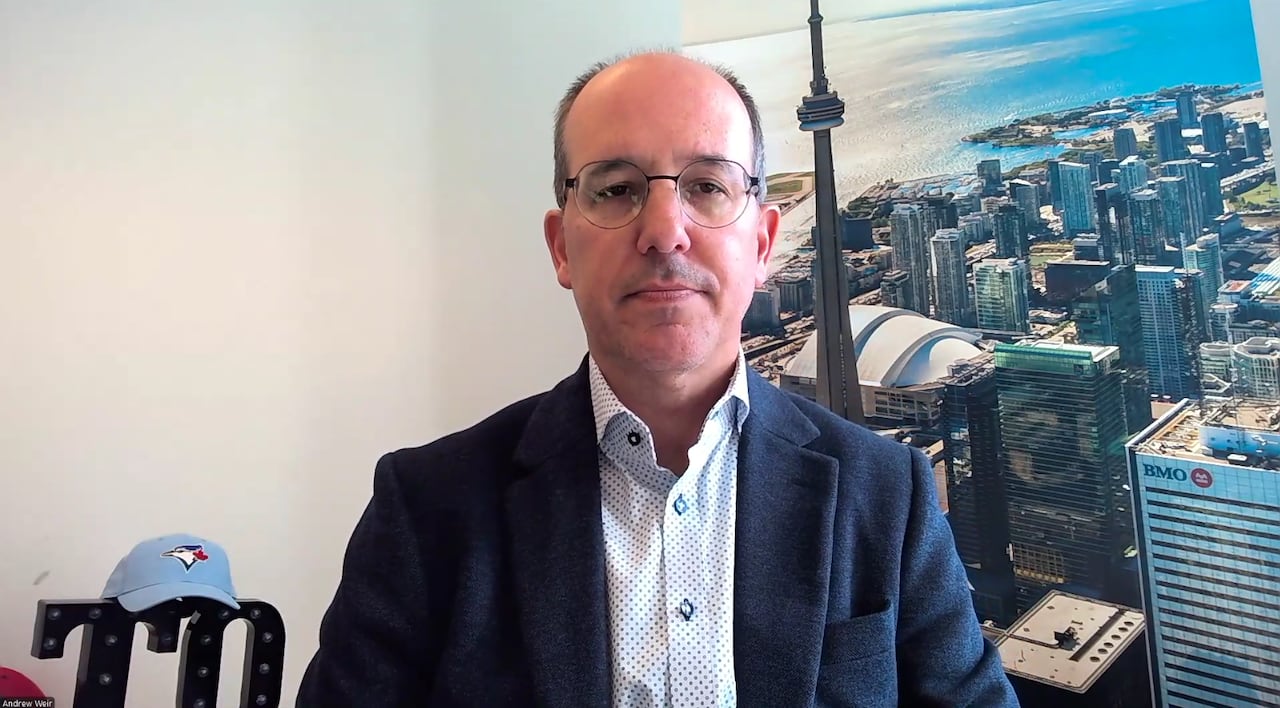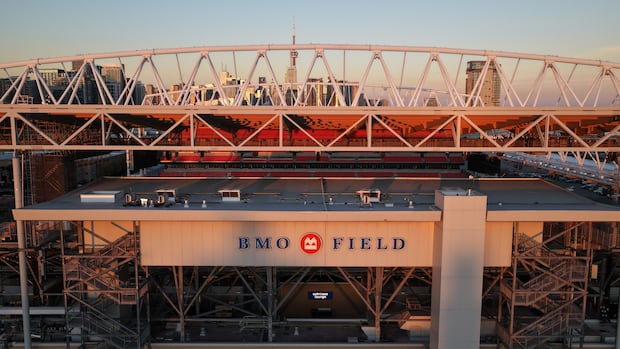The Greater Toronto Hotel Association says a hotel tax increase introduced for Toronto’s FIFA World Cup games next year might be having a negative effect on tourism and travel to the city unrelated to the tournament.
A 2.5 per cent increase to the Municipal Accommodation Tax (MAT) started in June and the City expects $56.6 million to be raised by next July.
While that’s not a huge increase, Sara Anghel, president and CEO of the Greater Toronto Hotel Association (GTHA), told CBC Toronto it could be a deterrent for some visitors and those looking to hold other large events in the city.
“The more we increase our taxes, the less competitive we’re going to be against other cities that we compete with for conventions, for example,” she said.
Last year, city council voted to increase the MAT temporarily to 8.5 per cent in order to cover some of the costs of hosting six World Cup games. The increase came into effect on June 1and will be in place until July 31, 2026.
“I understand the city’s shortfalls and we want the games to be successful,” Anghel said. “ But overall it’s a significant increase.”
She feels the tax was already too high and worries Toronto may be looked over for conventions and city-wide events because of it.
“If you add in some of the challenges we face in the city: gridlock, congestion, community safety concerns. … All those factors then make Toronto less competitive,” Anghel said.
Vancouver has taken a similar approach for its seven FIFA games by creating a new 2.5 per cent tax on short-term accommodations that came into effect in February 2023.
U.S. host cities relying on corporate sponsorships
But none of the host cities in the U.S. or Mexico have done so, Anghel said. Instead, they’re relying on significant corporate sponsorships and other initiatives.
After a busier than expected summer – and a so-far-successful playoff run for the Toronto Blue Jays – Anghel thinks Toronto hotels might be raising the necessary funds faster than expected.
She sits on the City of Toronto’s FIFA advisory committee and plans to ask the city to track what’s been earned so far. If the city raises the money it needs early, she said she feels any excess should be invested into tourism initiatives that will promote the city during the tournament.
“Staff continue to monitor the performance of the MAT and should any overperformance occur beyond initial projections, staff may recommend appropriate adjustments or budget allocations through future variance reports or budget processes in consultation with the Mayor, City Council and in consideration of potential [FIFA] requirements and the tourism sector,” said city spokesperson Elise von Scheel in an emailed statement.
Meanwhile, higher hotel prices aren’t likely to be a deterrent for the thousands of World Cup spectators expected to visit Toronto next June and July.

Destination Toronto CEO Andrew Weir told CBC Toronto those visitors will be an immediate boon to many of the city’s business sectors.
“They will be here for long periods of time in many cases and will take in the games and participate in other kinds of activities, restaurants and attractions throughout the city,” he said.
Additionally, Weir said he feels the World Cup will have the long-term effect of enticing more visitors from across the globe.
“Anybody around the world watching the World Cup at that time is watching Toronto,” he said. “That’s a time when our city is going to look great. It’s June, the weather is going to be great and the city is just going to be highly energized, so there’s that kind of lift from the broadcast.”
Come December, when FIFA is expected to announce which teams are playing which games in which city, Destination Toronto will also ramp up efforts to promote tourism in the places where the most people will be watching, Weir said.
“[It’s] an opportunity for Toronto really to show the energy and vibrancy of our city and have that seen by millions upon millions of people, especially in markets that we can target once we know which countries are going to be here.”







